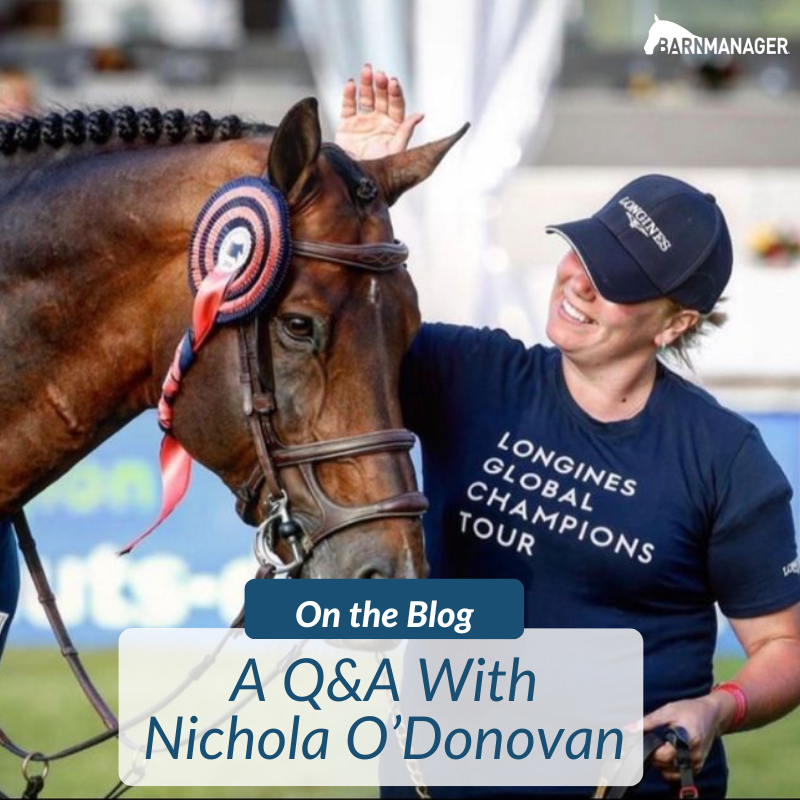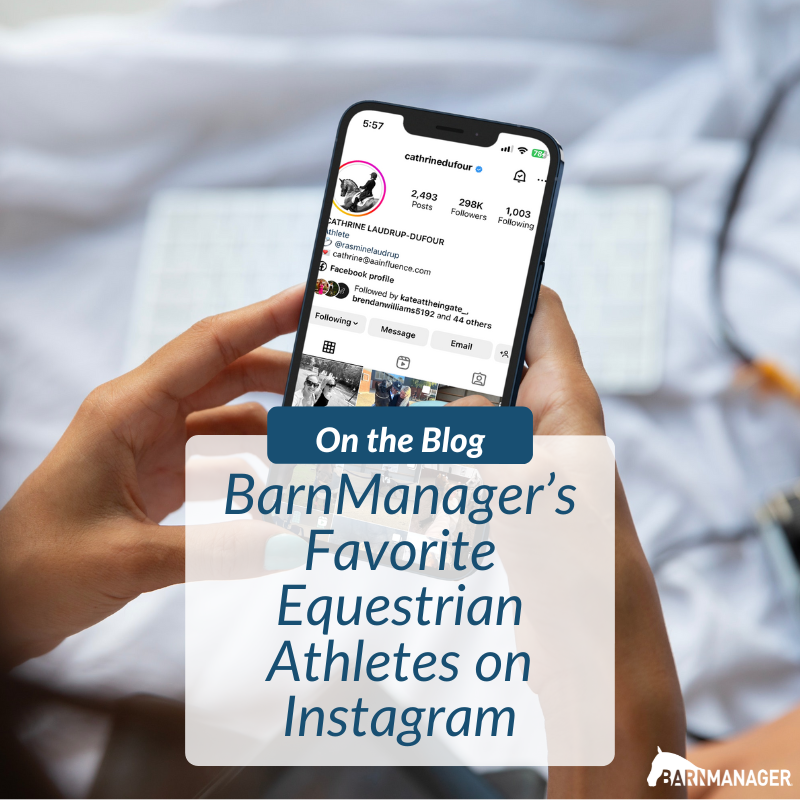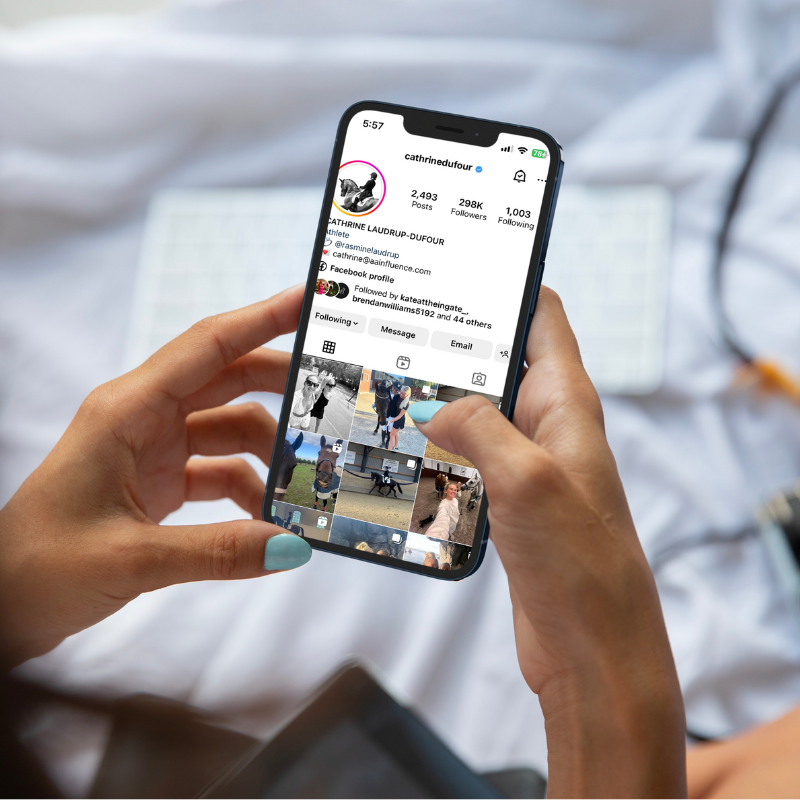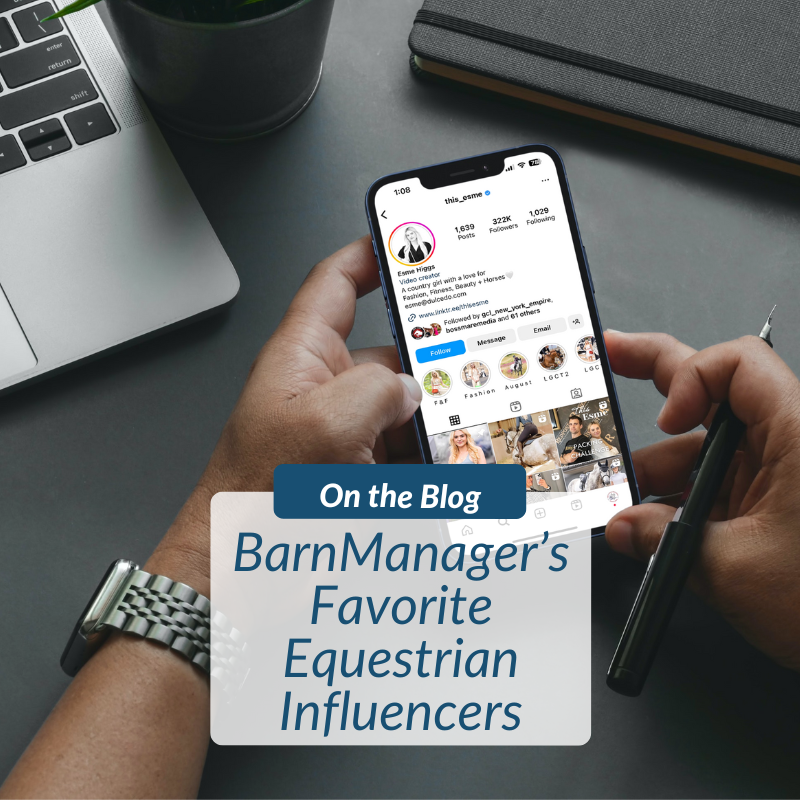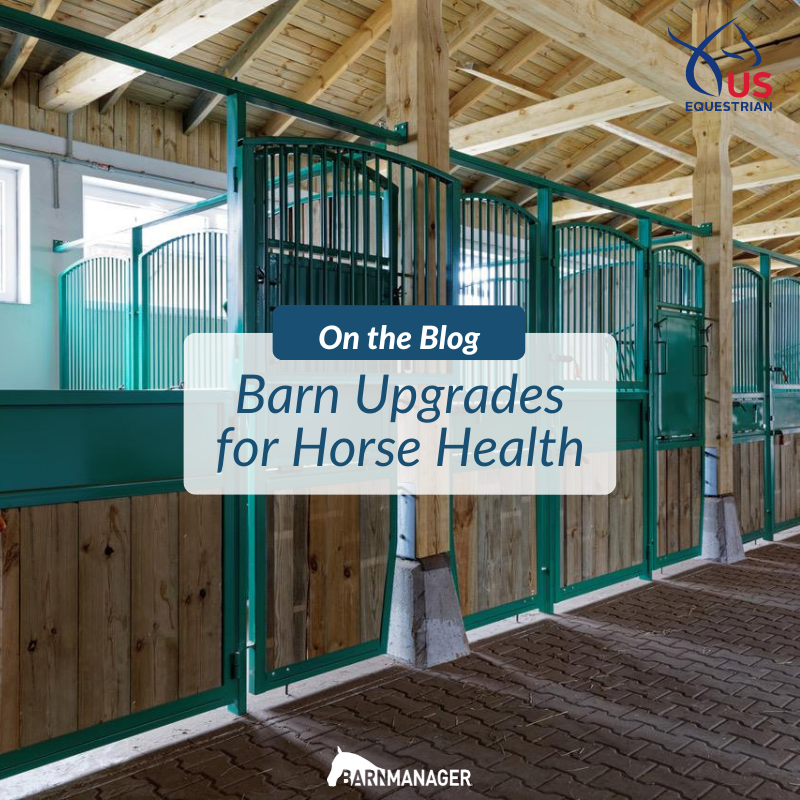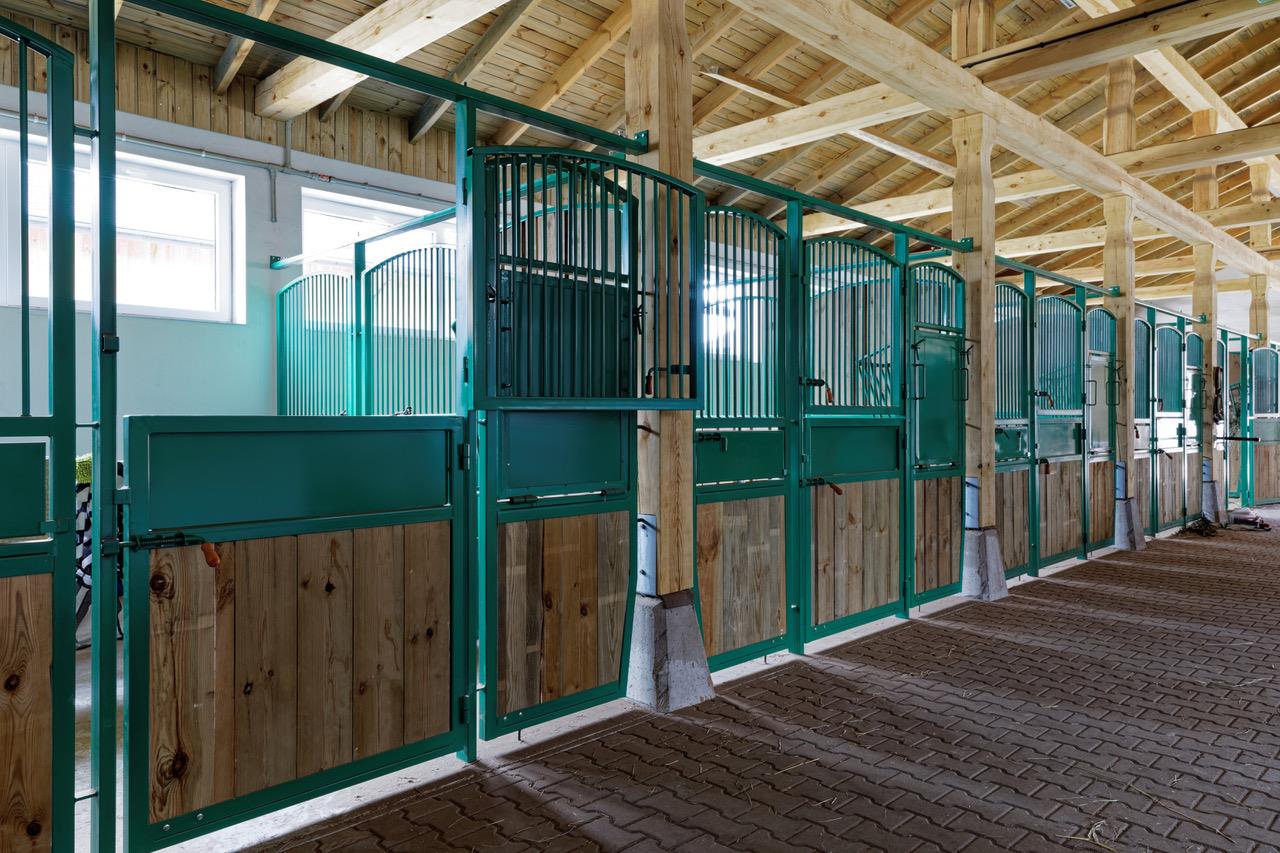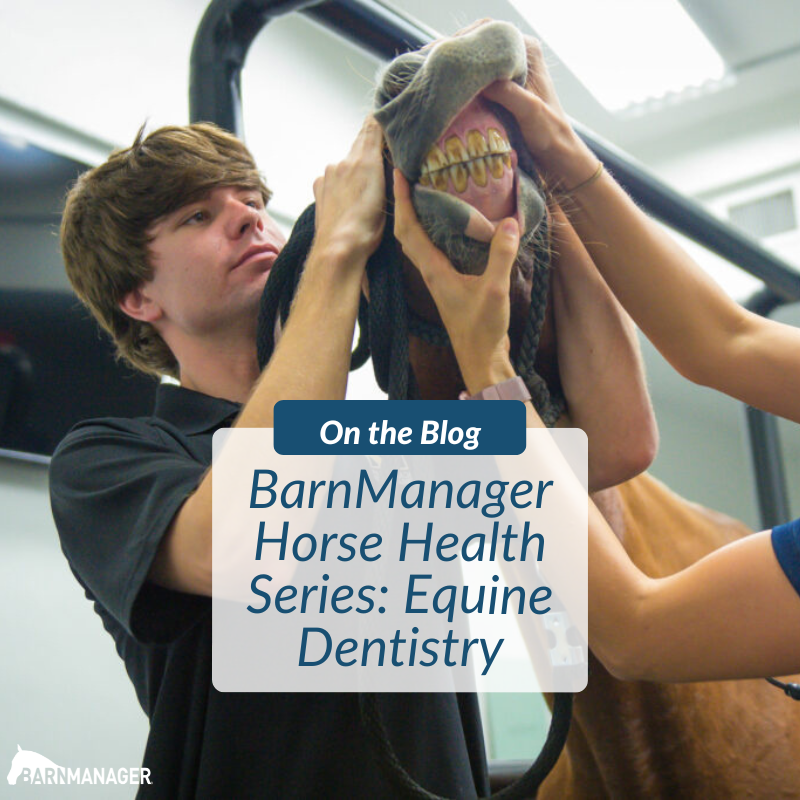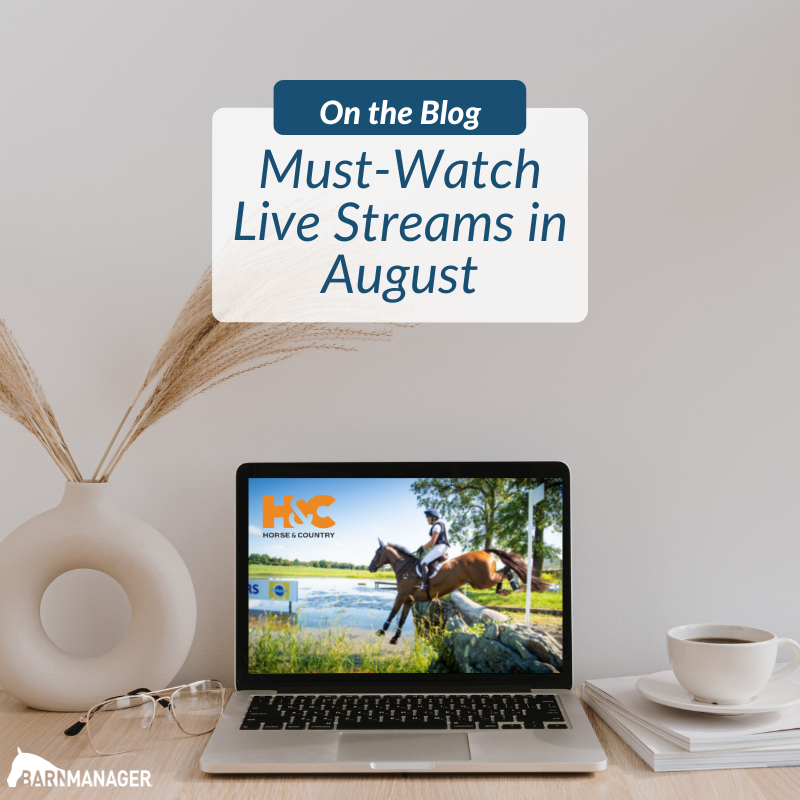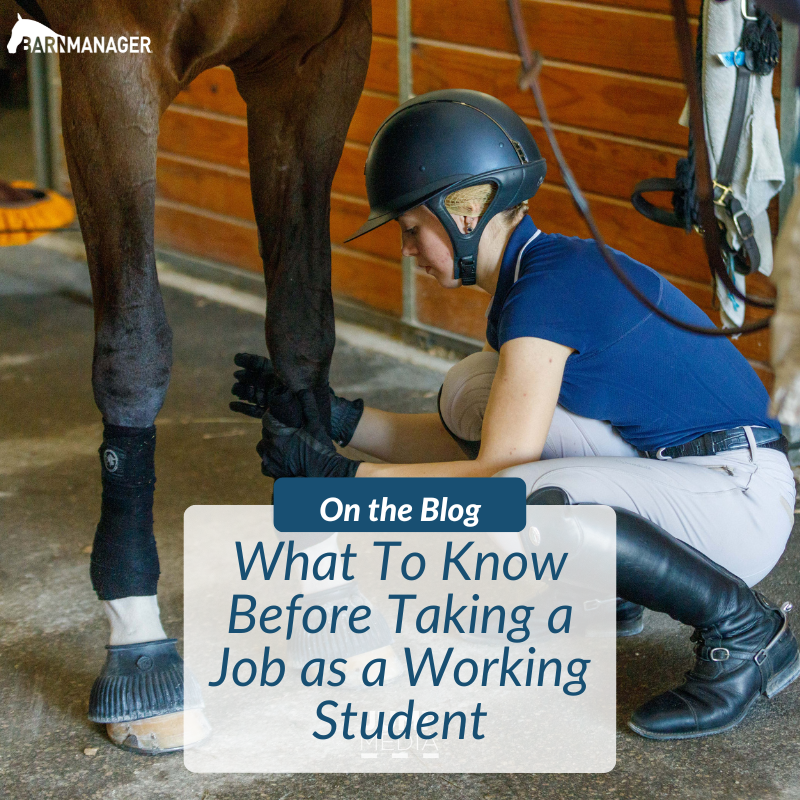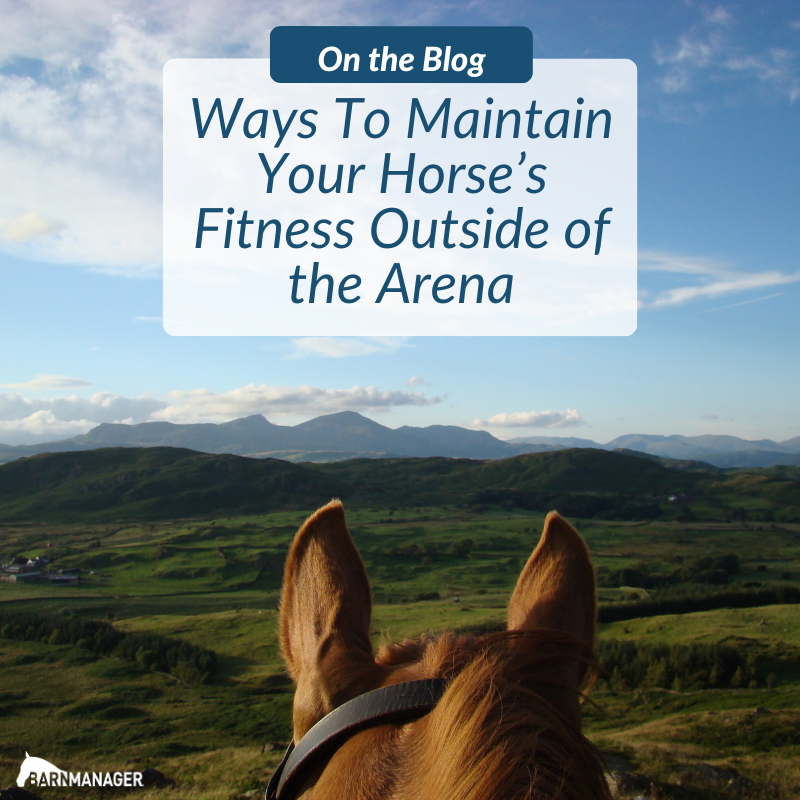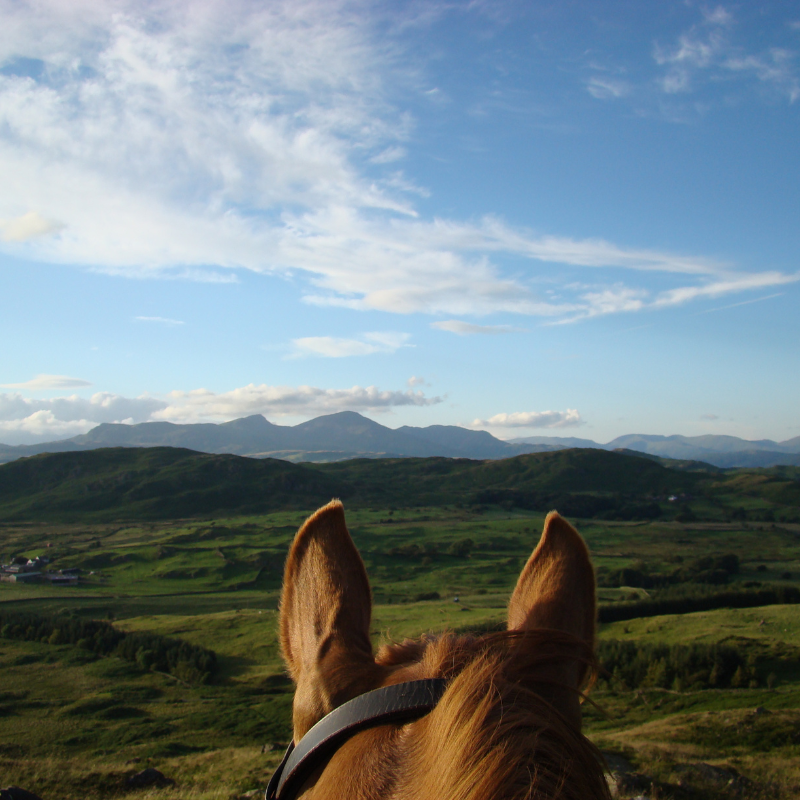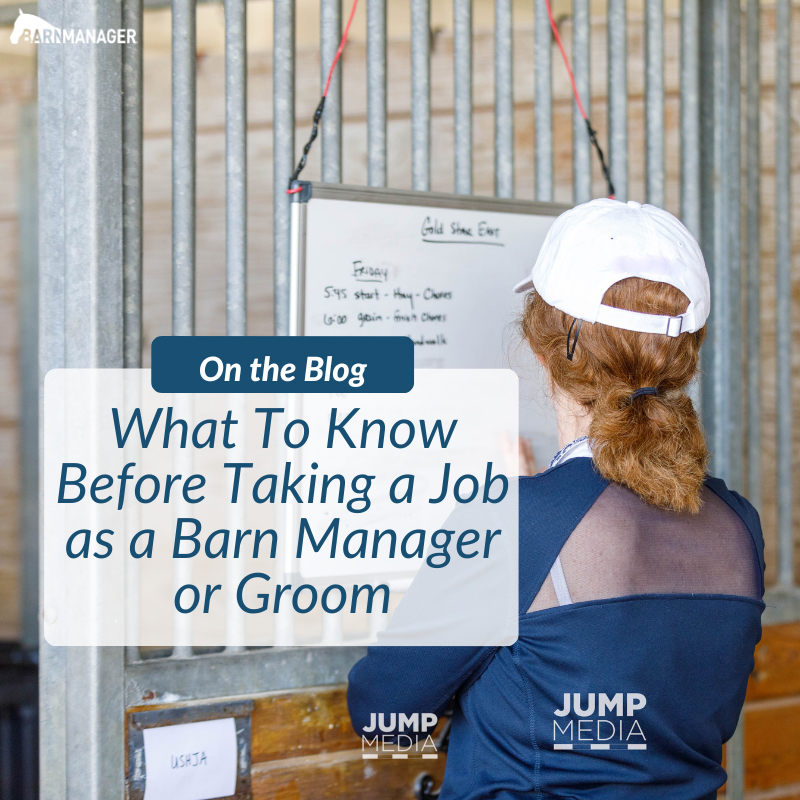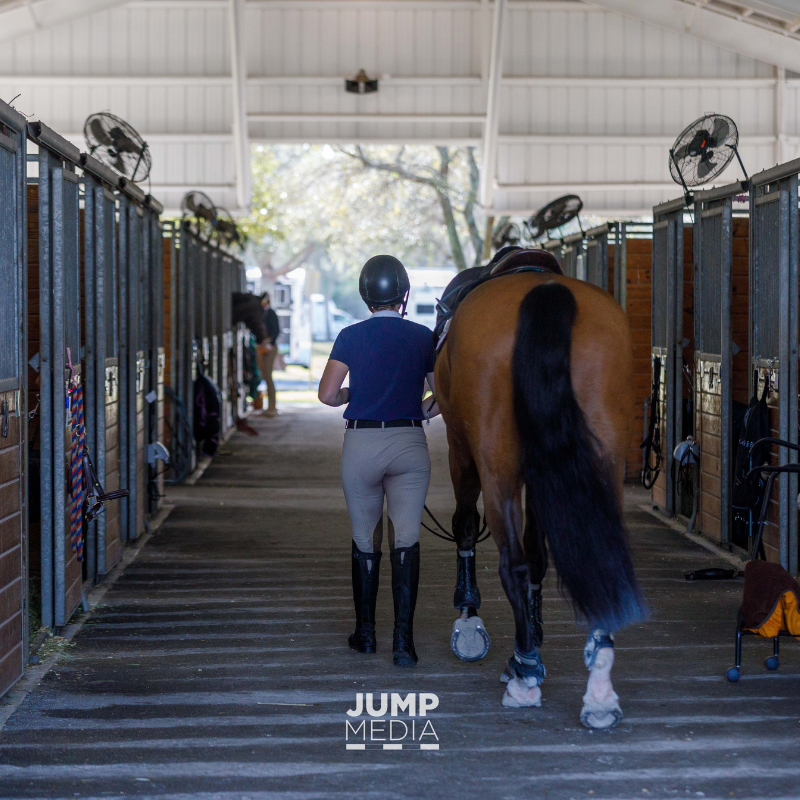BarnManager Q&A With: Nichola O’Donovan
Nichola O’Donovan, manager for young show jumping athlete Hallie Grimes of Can We Keep It? LLC based out of Wellington, FL, and North Salem, NY
What are three things that are always in your ring bag and why?
Picking only three things is difficult, but the first thing I always like to have is a hole punch so we can make adjustments, even though sometimes the hole punch likes to grow legs and walk out of the bag. The second item is vet wrap in case of an emergency at the ring like an overreach. The last thing is a bag of cookies because it’s nice to let the ponies know when they’ve been good.
What’s something you learned early in your career that has stuck with you?
I wouldn’t necessarily say this came to me early in my career – it took me a while to realize it – but one thing I’ve learned is that because we work with many people from many backgrounds in this industry it’s important to remember that not everyone will do things the same way you do. This does not mean they are doing it wrong; it just means there are many ways to do the same thing. You can always learn a new way of doing something if you just take a minute.
What is your best tip for staying organized during a busy show day?
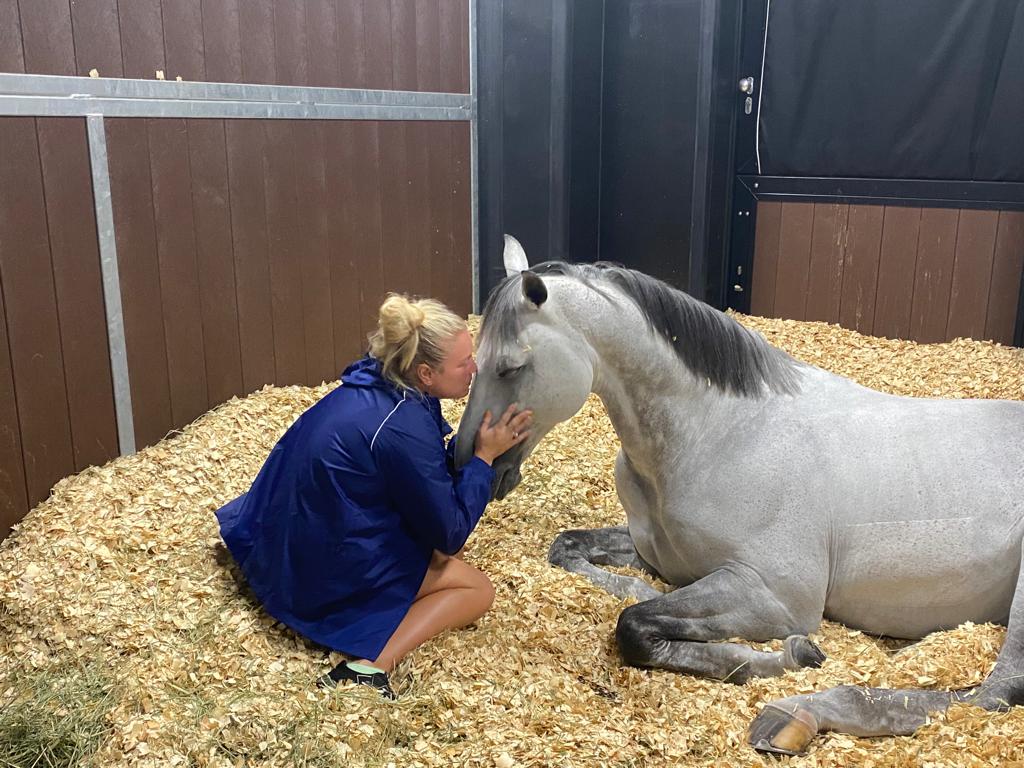
Photo courtesy of Nichola O’Donovan
On a day when I know I’m going to be busy, I make sure I start my morning with enough time. Having chores done before the horses get exercised is a big help. Whenever there are an extra five minutes, I like to clean the tack that is done being used. There is nothing worse than turning around at 5 p.m. and seeing a huge pile of tack to clean.
What is one horse show you have never been to but would love to attend?
I’ve been very lucky and have ticked nearly all shows and goals off of my list. I have never done a World Cup Final so that is top of the list now. My favorite locations are London, Dublin, and Rome. Any shows in those locations make me excited.
Mares, geldings, or stallions? Why?
I’ve had a quirky bunch of all three over the years, and none were easy to bond with in the beginning. I honestly cannot pick one. If they get your trust and bond with you, they will give you their whole heart. I’ve had a gelding and two stallions that really knew I was their person and that was something special.
If you were a horse, what would you be and why?
I would probably be a feisty companion pony. I wouldn’t be open to a herd of friends but would be very loyal to a few.
Have questions about utilizing BarnManager or want to give it a try for yourself? Request a live demo here!
